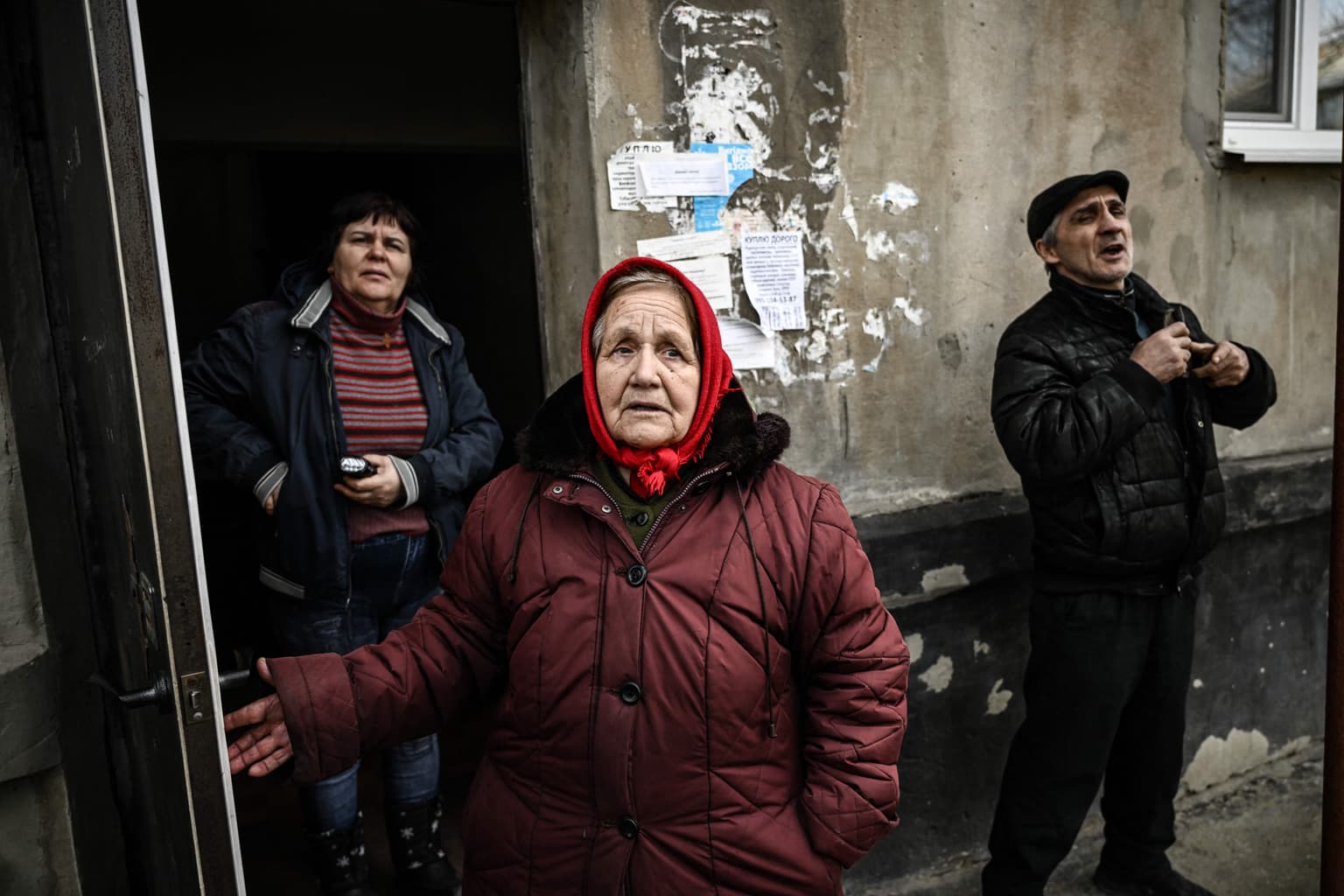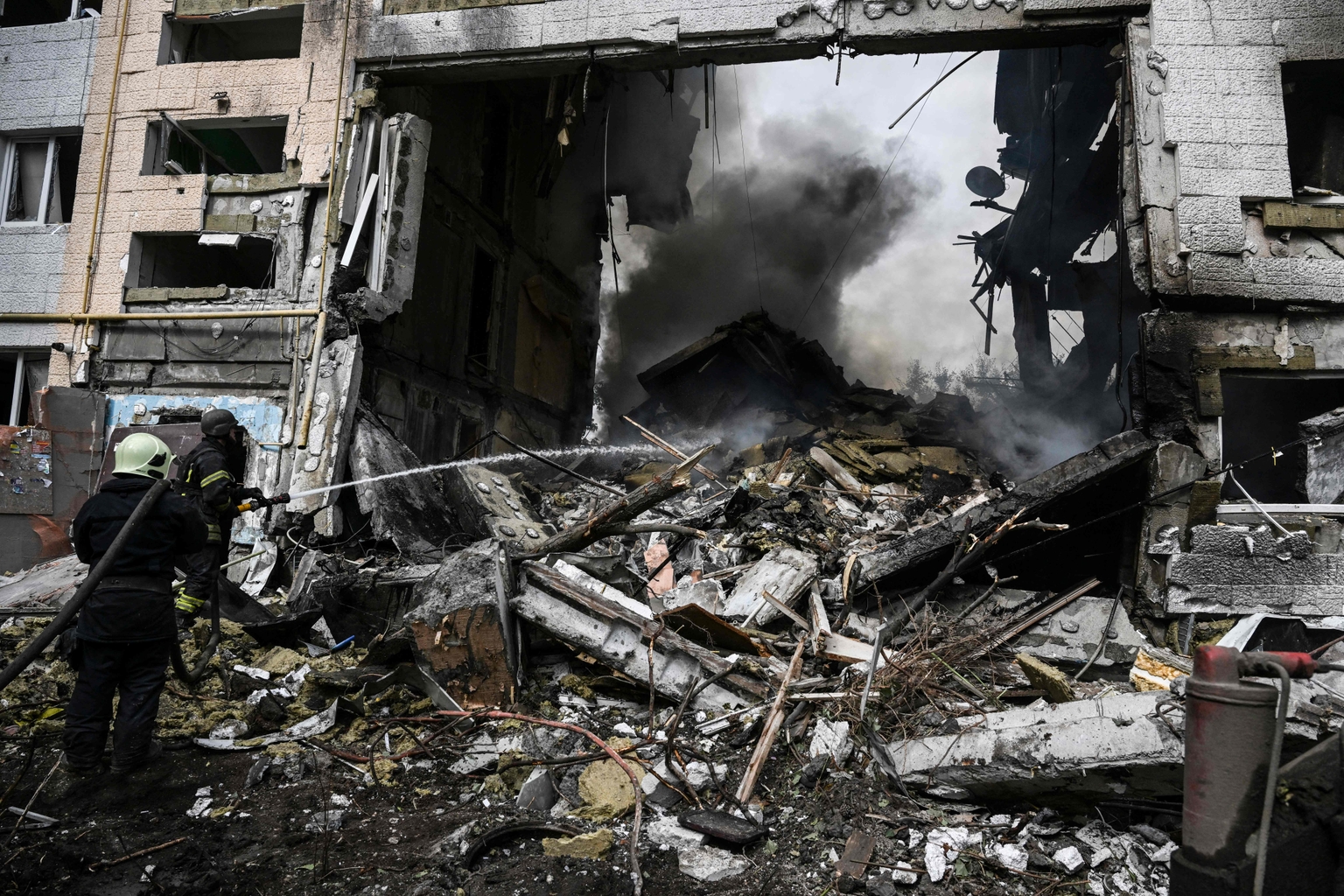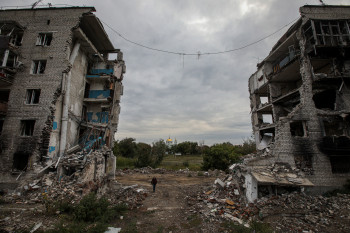Ukraine war latest: Moscow’s proxies in 4 regions announce dates for ‘referendums’ to join Russia, Ukraine and West denounce the plan

Key developments on Sept. 20
- Moscow’s proxies in the occupied territories of four Ukrainian regions say they will hold “referendums” to join Russia on Sept. 23-27.
- Russia launches 7 missile strikes, 20 airstrikes across Ukraine
- Erdogan alleges Putin willing to end the war in Ukraine
- Moscow’s missile strike on Kharkiv Oblast kills 2
Russian proxies in the occupied territories of four Ukrainian regions claimed they will hold “referendums” on joining Russia on Sept. 23-27.
Proxies in Moscow-held territories of Donetsk and Luhansk oblasts in the east, as well as Kherson and Zaporizhzhia oblasts in the south, announced their plans one after another on Sept. 20.
Kyiv warned that the illegal annexation votes will not change Ukraine’s position regarding Russia’s war.
“Russia has been and remains an aggressor illegally occupying parts of Ukrainian land. Ukraine has every right to liberate its territories and will keep liberating them whatever Russia has to say,” Foreign Minister Dmytro Kuleba said.
Ukraine earlier made it clear that there will be no peace talks if Russia decides to hold staged referendums in occupied territories.
The West also denounced Moscow’s plans to hold “referendums.” U.S. National Security Adviser Jake Sullivan said that Washington rejects any such votes “unequivocally.” French President Emmanuel Macron called such plans “a parody” and "cynicism," while German Chancellor Olaf Scholz denounced it as a “sham.”
Russia first illegally annexed Ukraine’s territory in 2014. Following a sham “referendum” in the Crimean Peninsula, Moscow declared it Russian territory. Most countries continue to recognize Crimea as part of Ukraine.
Moscow has long been talking about holding sham “referendums” in Ukraine’s south and east during the full-scale invasion but has failed to make them happen.
The announcements of the vote come amid Ukraine’s successful counteroffensive in the northeast and the ongoing advances in the south.
Also on Sept. 20, the Russian parliament adopted amendments that prolong jail terms to 10-15 years for surrendering, looting, and other wartime acts. The concepts of “mobilization, martial law, and wartime” have been introduced in the Russian Criminal Code.
Among the new measures is that those refusing to serve in the army can now face up to three years in prison. Criminal responsibility now also awaits reservists who fail to show up despite being called for military training.
Following the news, Russian state-controlled media announced a televised address by Russian dictator Vladimir Putin on the evening of Sept. 20, followed by a speech by Russian Defense Minister Sergei Shoigu. However, both appear to have been canceled or postponed.
Counteroffensive
Ukraine’s forces continue their efforts to recapture more territories in the south.
Ukraine’s Southern Operational Command reported that “active operations” continue in Kherson Oblast to inflict logistic problems on Russian troops. The command didn’t provide details.
The command’s spokesperson Natalia Humeniuk said late on Sept. 19 that there is “good news” awaiting Kherson Oblast but the region’s landscape makes the liberation process difficult. Another challenge is that Russians have built several lines of defense over the course of its “long” occupation of the region, but Ukraine is “gradually” breaking through, she added.
Meanwhile, the northeastern counteroffensive has slowed down, military analyst Oleksii Izhak told the Kyiv Independent.
Russian troops still control some territories between the Oskil River in mostly liberated Kharkiv Oblast and occupied Luhansk Oblast’s border, according to Izhak.
Possibility of peace talks
In an interview with PBS Newshouse published overnight, Turkish President Recep Tayyip Erdogan unexpectedly said that Putin is willing “to end this (war) as soon as possible.”
Erdogan made the comment after meeting Putin during a regional summit in Uzbekistan.
Oleksandr Khara, a fellow at the Kyiv-based Center for Defense Strategies, said that Russia could be seeking talks with Kyiv to either freeze the conflict or negotiate a ceasefire so it can reinforce its troops in Ukraine.
With ceasefires not being in Ukraine's interest after recent success on the battlefield, Ukraine will likely need to focus on pushing Moscow’s forces out of the country by military means, Khara said.
"I'm really skeptical about any luck in peace with Russia," Khara told the Kyiv Independent.

Casualties
On Sept. 20, the General Staff reported that Russian forces had launched seven missile strikes and 20 airstrikes on both military and civilian infrastructure across Ukraine.
The recently liberated village of Hrushivka in Kharkiv Oblast, on the western side of the Oskil River, came under fire again on Sept. 20. A Russian missile strike had killed at least two people and injured nine others, including four children, in the village, according to Kharkiv Oblast Governor Oleh Synyehubov.
In Donetsk Oblast, a civilian was killed in Toretsk, north of occupied Donetsk city, while 12 others were wounded across the region within a day, the oblast’s governor Pavlo Kyrylenko reported.
At around midnight, a Russian airstrike hit a high-rise residential building in the front-line city of Bakhmut, Donetsk Oblast, causing three entrances to the building to collapse, Kyrylenko said.










